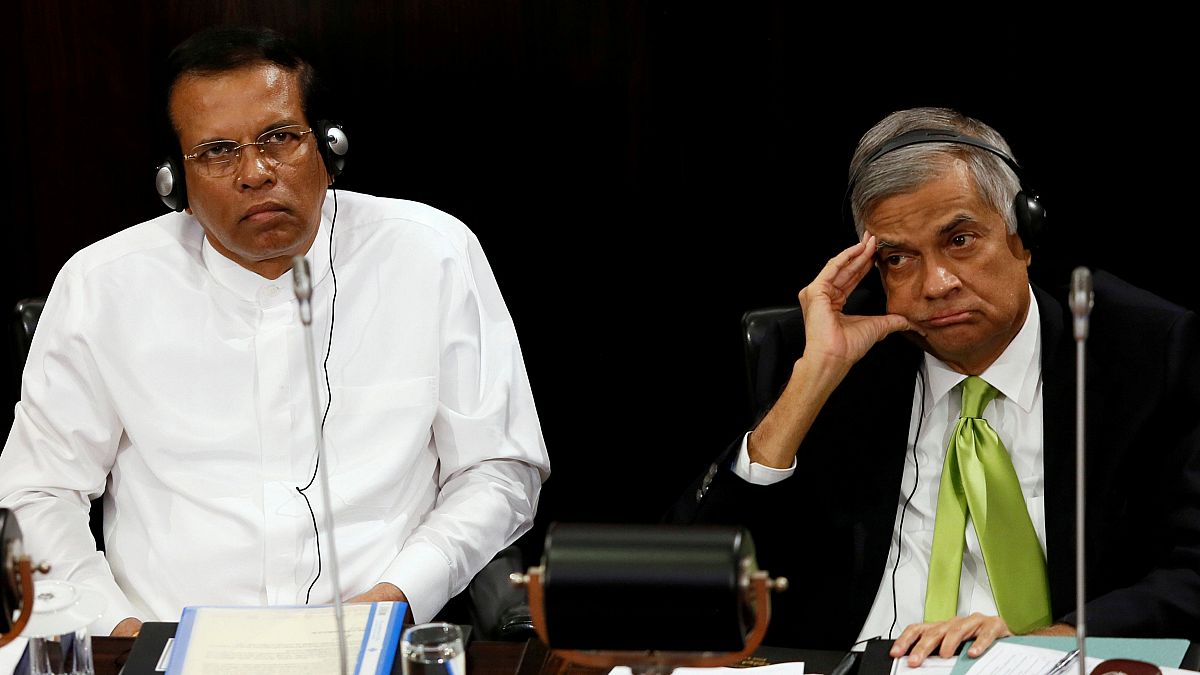Sri Lanka: What started the feud between the PM and president?
Divisions within the leadership in Sri Lanka were highlighted on Tuesday as it emerged authorities had prior warning about the movement accused of the Easter bombings, which saw 310 people lose their lives.
READ MORE: Sri Lanka bombings: Authorities under pressure over advance warning of attacks
Specifically, a rift between President Maithripala Sirisena (pictured above left) and Prime Minister Ranil Wickremesinghe (right), which sparked a crisis last year.
Police were warned earlier in April about a possible attack on churches by a little-known domestic Islamist group, according to a document seen by Reuters.
On Monday, ministers held a press conference and said local Islamist movement, the National Thowheed Jamath (NTJ), was behind the attacks. Although no evidence was offered and the group has not claimed responsibility. The only group to claim involvement is the so-called Islamic State, although that's as forensic as the claim got, as no further comment was made.
Authorities were warned two weeks before the bombings and had the names of attackers, but this information was not shared with the prime minister or the cabinet, Health Minister Rajitha Senaratne said at a press conference on Monday.
It was not clear if Sirisena was aware of the report but the top security organisation, the Security Council, reports to him, while the prime minister was no longer invited to council meetings because of the rift, Senaratne said.
Prime Minister fired and reinstated in a matter of months
The president briefly replaced Wickremesinghe in October 2018 over political differences, replacing him with Mahinda Rajapaksa and suspending parliament.
The resulting crisis led to the Constitutional Court reinstating parliament and the president returning Wickremesinghe to his role under pressure from the Supreme Court — he resumed his post in December 2018.
Relations between the pair have not improved and their differences have delayed government decisions, according to politicians.
Some political commentators in the country attribute the events to a difference in views between Sirisena's purported pro-Chinese leaning and Wickramasinghe's backing for ties with India.
The premier has been kept out of intelligence briefings since the fallout, Senaratne said.
He added that the prime minister has not been invited to meetings of the country's top security organisation, the Security Council, which reports to Sirisena, because of the rift.
With the president out of the country when the blasts hit on Sunday, Wickremesinghe called a Security Council meeting but members did not show up, according to the minister.
"This is the first time in history we have seen that the Security Council refused to come for a meeting with the country's prime minister," he said.
He added that the president had appointed a special committee led by a supreme court judge to investigate what had happened.
